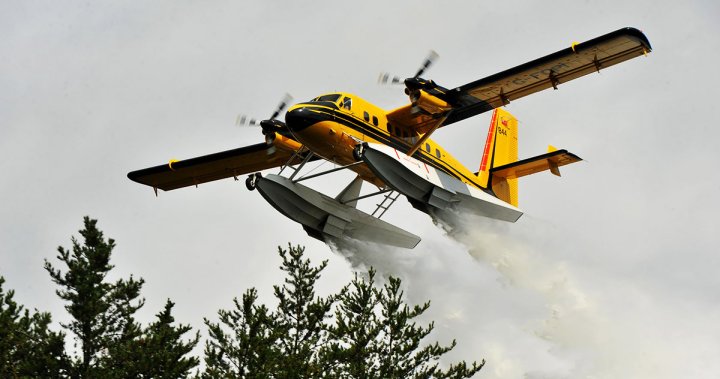The Ford government in Ontario is facing challenges with its forest fire program, as one in five of its crews are unstaffed and key aircraft are delayed. The fire season officially began on April 1, following a difficult campaign across the country in the summer of 2023. Opposition politicians and unionized forest firefighters have criticized the government’s management of the program, which has struggled with recruitment and retention issues for years. Despite offering a $5,000 bonus to attract and retain forest firefighters, only 80 percent of the province’s crews are currently staffed, with some bases experiencing vacancy rates of over 50 percent.
The low staffing levels, especially in northwestern and northeastern Ontario, raise concerns about the safety and effectiveness of firefighting efforts this summer. The government has defended its recruitment efforts, stating that hiring and onboarding will continue throughout April and May. However, some within the wildland firefighting community fear that understaffing could jeopardize the safety of those fighting fires. The Ontario Public Service Employees Union (OPSEU) has accused the government of disregarding the health and safety of forest firefighters. The government has highlighted resource-sharing agreements with municipalities, Indigenous communities, and other agencies to provide additional personnel and equipment when needed.
In addition to staffing issues, Ontario is also facing challenges with its aircraft fleet for firefighting. Only three of the province’s amphibious aircraft were ready on April 1, with several key planes not expected to be operational until June. One of Ontario’s Twin Otter waterbombers will be unable to fly this summer due to the need for a wing replacement. Despite these challenges, the government maintains that it has enough resources to meet the current threat level. Concerns have been raised by opposition leader Marit Stiles about the readiness and support for firefighters, with worries that the government is not adequately equipping them for the upcoming fire season.
The government’s response to the issues with its forest fire program includes actively recruiting pilots and engineers to fill vacancies, although concerns have been raised about the ability to get all waterbombers in the air when needed. The government reassures that it is looking for solutions to address the staffing challenges and ensure that firefighting efforts are not compromised. However, criticisms persist about the state of readiness for the fire season and the level of support provided to frontline firefighters. With ongoing recruitment efforts and resource-sharing agreements in place, Ontario is working to address the staffing and aircraft delays as it prepares for what could be a challenging fire season in the north.













